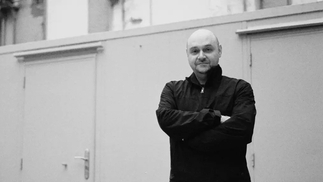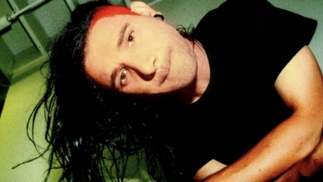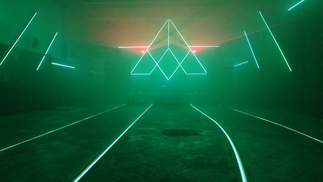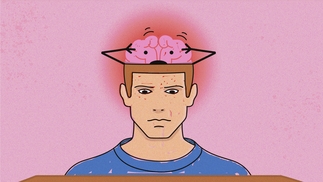MARIBOU STATE OF MIND
How a couple of guys who didn’t get on and a singer they didn’t know created one of the year’s most intimate albums
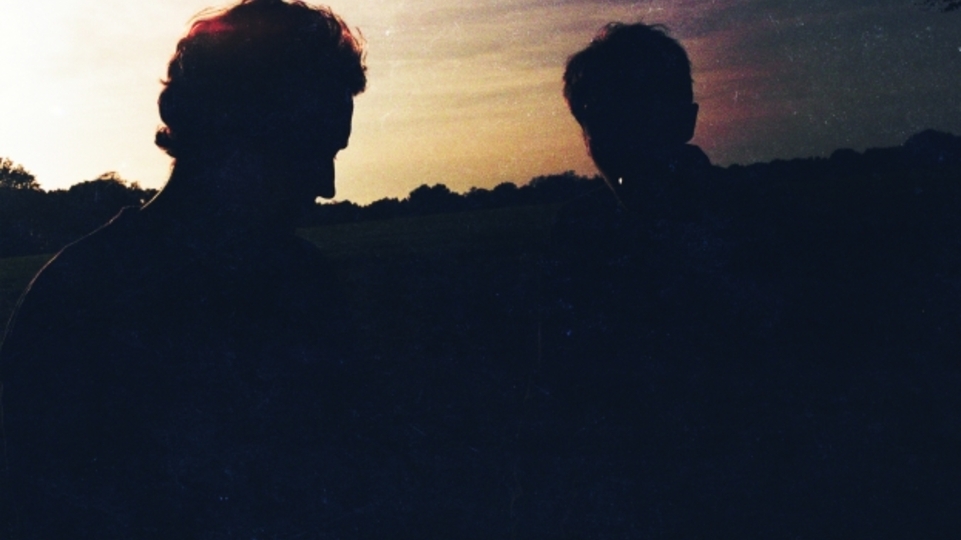
For a couple of guys grinding on a hit-and-run DJ tour of the USA, Maribou State’s Chris Davids and Liam Ivory are in good spirits as our Skype connection between Denver and New York repeatedly drops out due to “shitty hotel internet.” “Hang on,” they laugh and curse as they patiently walk their laptop around the room in search of a stronger signal.
Jammed frequencies are nothing new to the duo. Originally from Hertfordshire outside of London, they came together while university students in Leeds. Prior to that, even though they grew up in the same small town, they didn’t become friends until the formation of a band united their parallel halves.
Since forming in 2011, their ascendance has been swift. A couple of EPs, a few remixes, signing to Fatboy Slim’s Southern Fried Records, radio support from Gilles Peterson and Annie Mac, festivals including Glastonbury – Maribou State has checked these boxes in just four years.
Presently, they are focusing on ‘Portraits’, their debut LP released June 1 on Ninja Tune’s Counter Records. A deft blend of psychedelic soul, breakbeat, indie rock, and downtempo disco, ‘Portraits’ has been adorned with adjectives such as sublime, transcendent, mystical.
It’s easy to hear why on songs such as ‘Steal’, ‘Midas’, and ‘Rituals’ that sparkle like Zero 7, gnaw like Portishead, and groove like Primal Scream. All of the songs, despite peaking at five minutes, feel longer and more expansive than they are because Maribou State move through so many sonic motions in the time it takes a typical pop song to loop itself out.
With all this momentum propelling them, inevitably the question arises, “Where do they go from here?” The answer may have something to do with a new band.
This is a DJ tour you’re doing at the moment. How would you describe your styles?
Liam Ivory: “Chris likes the weirder stuff.”
Chris Davids: “My taste is drawn more to darker stuff, Burial, whereas Liam is not.”
Any tracks you’re especially fond of right now?
Chris: “Harvey Sutherland, Australian, everything he’s been doing is quite good. We play his stuff every time we play out. The one track that hasn’t left our set for a while, since November is a remix of Lovebirds’ ‘Give Me A Sign’ by Glenn Astro.”
How did you get into dance music?
Liam: “My brother was into dance music, a lot of trance and hard house. What tied it together for me was that in school you had to produce a piece of music on Cubase. Then I got into production and buying magazines like Mixmag and DJ Mag. I got into it quite late, honestly. This was around 2005, when I was around 16.”
Chris: “I got into it through friends. I didn’t have a brother like Liam. Unfortunately, my introduction to dance music was through Happy Hardcore. Worse, there are still pictures of me all decked out in smiley face gear out there.”
Liam: “One night, we went to a drum and bass night at Fabric for Chris’ birthday, none of us were old enough and I didn’t get it in. We went to a different club called Fluid where Colin Dale was spinning and that was my introduction to house music.”
Chris: “We all got the same bus on the way home. Half us were coming out of this drum and bass night and the others were going on about this incredible house party.”
A sound bite to your bio is that you didn’t know or like each other growing up.
Liam: “Even when we first started in our first band together, we didn’t really get on. There were not many musicians at school. There was no one to play with. Chris was friends with one of the guys, and I was friends with another so we got together. After a while, working together, you just have to get on.”
Chris: “We’re both just too similar. Liam was just jealous that I was so cool.”
Liam: “We lived in a village in the middle of nowhere, north of London - Hertfordshire. There wasn’t much of anything going on there.”

Now that you’re famous, do you keep in touch with everyone?
Chris: “We’re still best friends with all our mates in school, even ‘now that we’re famous’ - it’s one of the nice things about growing up in a small town. Liam was supposed to move to London a couple years ago, but it’s never worked out.”
You got signed to Norman Cook/Fatboy Slim’s Southern Fried Records pretty quickly. How did that come about?
Chris: “When we started playing out, we used to edit a lot of tracks because we didn’t like what we were hearing and didn’t want to use it. We did an edit for Norman’s ‘Praise You’ kind of our own way that caught his attention.”
This album has been described as “sublime.” How’s it feel to be “sublime?”
Chris: “We don’t set out to make celestial, sublime music. We aim for something more uptempo and less atmospheric. But that’s the way it comes out.”
Do you think part of the reason your music’s praised for its complexity is because it moves through so many moods and tempos in such a condensed period of time?
Liam: “We get bored of hearing the same sounds, so our tracks do kind of swirl in and out of ideas, like our attention spans. When you’re gigging and not getting a lot of sleep and you come into the studio, emotions can be a bit frayed.”
Chris: “We used to have a lot of discarded tracks where we’d abandon something and come back to it and think, what were we thinking?”
Even with all the grand gestures that pop up throughout, the album has a very intimate vibe to it. How was it produced?
Liam: “We have a studio in a converted shed in my parent’s house. Over the last 10 years as we’ve gotten more into dance music, we’ve bought more gear. And now that we’ve started doing the live thing, we’ve picked up even more gear.”
Chris: “We work on Ableton, lots of guitars. It’s a small space but it’s well packed-out.”
Do either of you have any ‘rituals’ for working out new material?
Chris: “Laptop, really. It’s always nice to go to the studio and play with the instruments. There are a few songs on the album that were started on a guitar or the piano. Most of the ideas come late at night, literally just as you are falling asleep and you have to get up and half try to put this down while you’re absolutely tired. Most tracks start from making a beat first.”
Holly Walker is a great vocalist. She fits nicely into the mix. How did you connect?
Liam: “We met Holly though a vocal agency, actually. We didn’t know any singers, and neither Chris nor I can sing. We asked our manager and he found an agency. Going through their show reel, we came on a track she had written.
We really liked the chorus, or a part of the track, and reworked it into the release ‘Tongue’, which was the first thing we did with her. We realized how talented she was, so we decided to keep working with her. We’re glad we found her because she’s so talented.
It’s comforting to know that you have a singer who’s going to smash it every time; it’s one last thing to worry about. We became friends very quickly over a couple of years working together. To add to the soullessness of the story, we wrote the track and she did the vocals, separately.
We didn’t actually work together. Her approach to writing is very smart. She doesn’t like to do things by the book. She likes to keep things off-kilter. She did the lyrics for all the songs. With ‘Midas’ we wrote the lyrics and sent them over and she was like, ‘Ugh, no,’ and redid them.”
How did Pedestrian (Jack Sibley) end up on this album, and will you be working with him again?
Liam: “We’re moving to Berlin next week and we’re going to start working on tracks he did for us. By the end of this year we should be back with a full band including Jack and Holly.”
How did this project with Jack evolve? Is it going to be a one-off?
Chris: “Two years ago we spent a week in a barn in an area called North Downs, near Hollingbourne. We stayed there for a week and wrote as much music as we could. Almost a year later, we did the same thing. Now, we’re going to head to Berlin and turn it into an album. It’s going to be a separate album, not a Maribou State album. We never set out to make it a separate project. The music in the first sessions sounds a bit like Maribou State. The second session we pulled more blues influences. It’s still electronic, but a lot more use of guitars and drums. It’s going to sound very far removed from our Maribou sound.”
What are you calling this project and how are you keeping the projects distinct?
Liam: “Everything that we do in that week there is going to be done as North Downs. Anything we do outside of that is going to be Maribou State material.”
Between North Downs and Maribou State, where is your heart centered?
Chris: “North Downs is presently a bit of a treat, a labor of love, a bit of a holiday.”
Liam: “Deep down, all of us, we enjoy that the most. We’d all love it to turn into something that’s big and well-received.”
WORDS: JORGE HERNANDEZ
